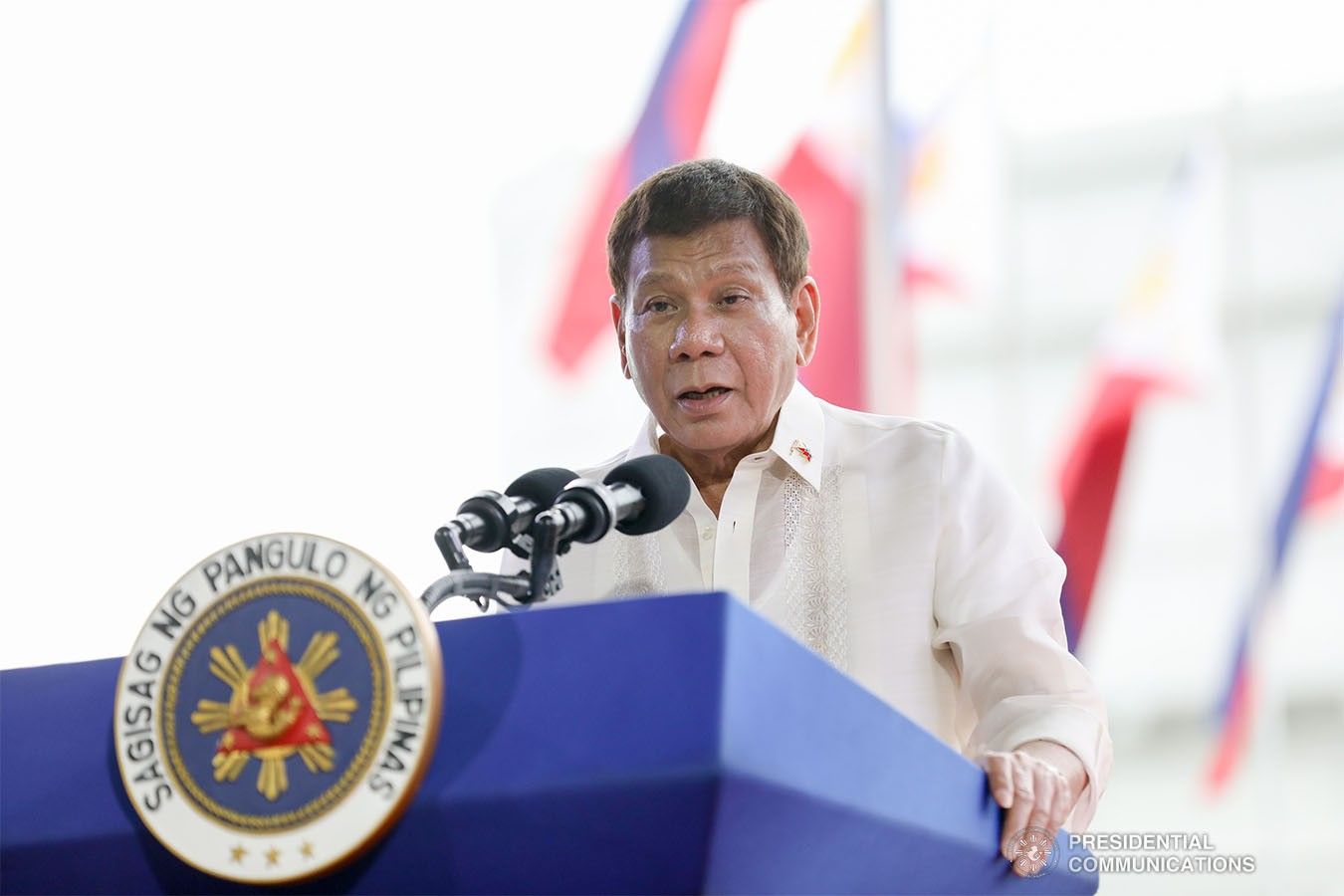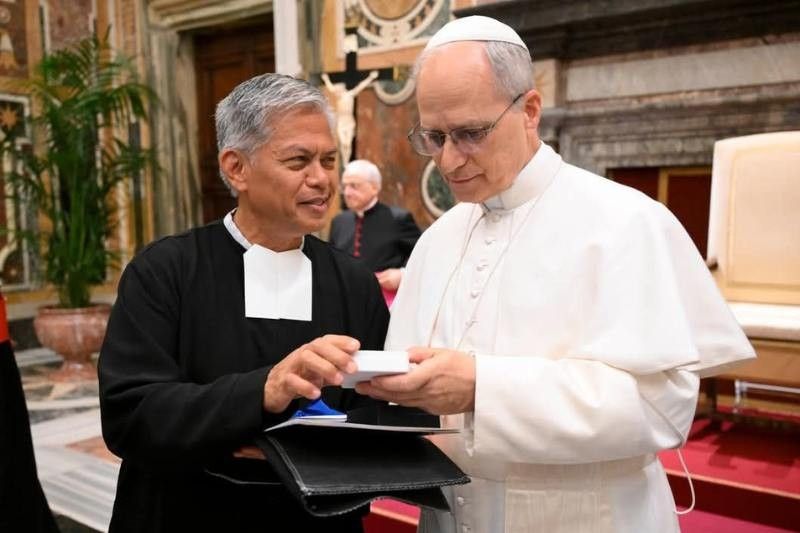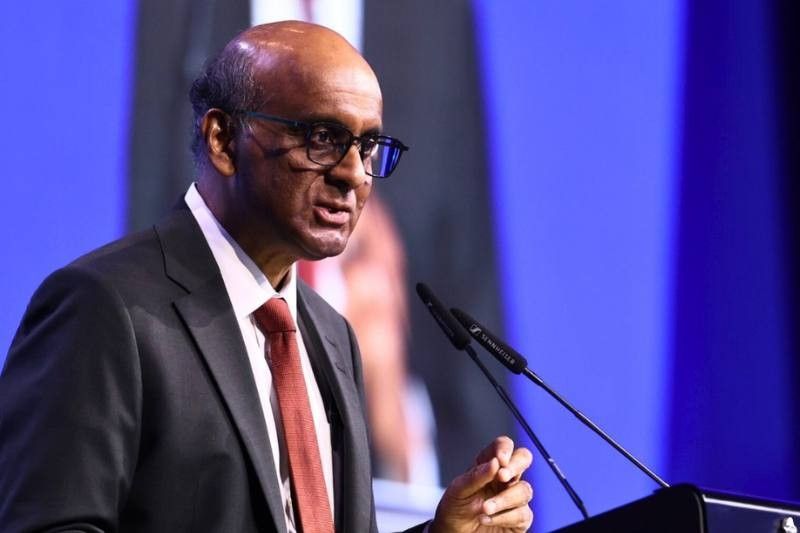
Upgrade to High-Speed Internet for only ₱1499/month!
Enjoy up to 100 Mbps fiber broadband, perfect for browsing, streaming, and gaming.
Visit Suniway.ph to learn
MANILA, Philippines — The ongoing conflict in the Middle East is seen to have a “minimal” economic impact for now, but the government is bracing for all possible scenarios, including the potential closure of the Strait of Hormuz, which may force the Philippines to look for other oil supply sources and routes.
President Marcos met with his economic team yesterday at Malacañang to assess the effects of the war between Israel and Iran and to discuss measures that would cushion the impact of the price shocks on vulnerable sectors.
The meeting came hours after US President Donald Trump announced a six-hour ceasefire, which resulted in the easing of oil prices and sparked hopes that a peaceful resolution to the conflict would be achieved.
“So far, based on what is happening today, so far as the conflict has subsided and the prices have gone down, it seems that the impact on our economy is minimal,” Energy department officer-in-charge Sharon Garin, who was present at the meeting, said at a Palace press conference.
“I cannot give you the exact numbers, but the impact is minimal that I don’t think it’s alarming for our economic managers,” she added.
According to Garin, Department of Economy, Planning and Development Secretary Arsenio Balisacan also talked about the impact of volatile oil prices on overseas Filipino workers’ remittances, exports, imports and trade.
“With the current situation that may no longer escalate or is slowing down or the ceasefire, hopefully it will last longer, the ceasefire, among all the countries involved. And I think Secretary Arsi (Balisacan) added that of course, Iran and Israel will always have conflict. But other countries may not be involved,” the energy official said.
“With all those considerations, I don’t have the numbers here... but the impact is so minimal to our economy that it doesn’t seem alarming as of now as long as it does not escalate again or...worsen,” she added.
Garin said oil prices, which breached $70 per barrel last Monday, went down to $69 per barrel yesterday morning. The downward adjustment was linked to Trump’s ceasefire announcement, which lessened the speculations in the market. The administration, nevertheless, acknowledged that the situation in the Middle East remains volatile.
“We’ll see tomorrow if there are changes in the situation in the Middle East. But, everybody’s closely monitoring what’s happening there,” Garin said.
Worst case scenario
Garin said economic managers tackled several possibilities, including the closure of the Strait of Hormuz, the worst case scenario seen to cause supply pressures.
“If it gets cut off, then that’s not only... bad news for the Philippines, but the whole world,” the energy official said.
“If there is closure, which I really doubt and because that’s against the interest of everyone in the Middle East and the whole world, even the big countries, I don’t think they would allow that. But there are also alternative routes for shipping, also alternative sources – we are talking about the Middle East here,” she added.
Garin pointed out that there are other Organization of the Petroleum Exporting Countries (OPEC) members who could cover the possible supply gap. If that is not possible, there are other potential suppliers like US, Canada and Brazil, she noted.
“So, we have alternatives. It might not be as efficient, but the country has an option to find the alternatives,” Garin said.
“The worst case scenario is if we run out of supply. Prices will really increase. Right now, we have long-term options, but there are options also in finding other suppliers, finding other routes for our supply,” she stressed.
Aid readied
Garin said the government is readying the subsidies to be distributed to the farming and transportation sectors once the oil price breaches the $80 per barrel threshold.
The giving of ayuda or assistance is intended to prevent fare hikes, which will pose a burden to commuters.
“If we don’t allow increase of fares, we have to give them (drivers) something, otherwise they would shoulder the costs. The President does not want that,” Garin said.
“So, we need to make sure that everybody is protected and the government is willing to subsidize part of their costs of delivering our people from work to home and home to work. That is the subsidy to be given which is at P2.5 billion,” she declared.
Garin noted that oil firms have heeded the President’s appeal for them to implement a staggered price increase.
“I’m hoping by next week it will go lower and lower and there’s no need to stagger, unless we want to stagger the lowering, but I don’t think the people would want that. But if it does increase next week, then we will ask them to continue the staggered increases,” the energy chief said.
“And other than the ayuda, we are also asking for oil companies to expand or to increase their discounts or promos for public utility vehicles (PUVs). As of today, we have received confirmation that one company is willing to give P1 discount for our PUV drivers for every liter,” Garin disclosed.
According to her, the giving of aid would no longer be necessary if oil prices decrease, but the government would continue to prepare for the effects of the conflict.
“We want to be prepared. We want the oil companies to be prepared also, make sure they have enough stock. DOTr (Department of Transportation) is ready to distribute anytime, in case it escalates,” she said.
Suspend fuel taxes?
Asked to react to calls by transport groups to suspend the excise and value added tax (VAT) on oil, Garin said it would be up to Congress to decide on the matter.
“The excise tax and the value-added tax which is 12 percent are imposed because of a law. That’s legislation so the DOE (Department of Energy) cannot go against what is mandated by law, nor DOF (Department of Finance), nor even the President. So, the law has to be followed,” the energy official said.
“It will have to be an act of Congress. An amendment to the current law is needed to suspend, to lower or even to abolish taxes on fuel,” she added.
Garin noted that VAT and excise tax collections totaled P300 billion, and doing away with them could reduce the government’s budget.
“If we do away with the P300 billion, that’s also how many kilometers of roads, how many school buildings, health services that will be reduced,” she said.
“So, it’s a balance that the administration is trying to find. Riders of public transport are protected, but the basic service should also go on. So, that’s why ayuda might be a good start for now,” Garin emphasized. — Michael Punongbayan, Mayen Jaymalin

 12 hours ago
3
12 hours ago
3



